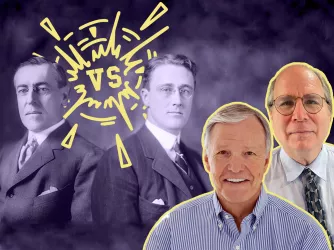Table of Contents
Ahmadinejad at Columbia Wrapup
The reviews are in, and it seems that Iranian President Mahmoud Ahmadinejad did not disappoint in his speech yesterday at Columbia University. After a hostile introduction from Columbia President Lee Bollinger, Ahmadinejad proceeded to call for more research on whether the Holocaust occurred and, in probably the most bizarre remark of the night, deny that Iran has any homosexuals, a comment that drew laughter from the audience. The Washington Post has a good summary of the event, while the New York Daily News and New York Post offered their own commentary on the speech. Memeorandum and Technorati have more blog reaction.
The wisdom of Columbia’s invitation to Ahmadinejad is debatable, and will indeed be debated for months and possibly years to come. However, his speech certainly demonstrated one of the primary reasons that speech needs to be protected—so that controversial ideas can be brought into the light of public scrutiny and debated. It’s unclear why exactly Ahmadinejad wanted to address an American audience that was certain to be extremely hostile to him and his views (although there is undoubtedly some reason for it). However, if that reason was to win over an American audience with his superior reason and argumentation, there can be no doubt that he largely failed. The behavior of the Iranian government had few defenders in America before Ahmadinejad’s speech, and afterwards it is likely that it now has even fewer. If that’s true, it’s true because people heard and considered his arguments and rejected them—and that’s exactly what those who believe in free speech, no matter how controversial the topic, should want.
Recent Articles
FIRE’s award-winning Newsdesk covers the free speech news you need to stay informed.

Wilson vs. FDR: Who was worse for free speech?
Podcast
Woodrow Wilson or Franklin D. Roosevelt: which president was worse for free speech? In August, FIRE posted a , arguing that Woodrow Wilson may be America's worst-ever president for free speech. Despite the growing recognition of Wilson's...

Right, left, and in-between: Can we bring our differences to the table?

How to survive Thanksgiving
